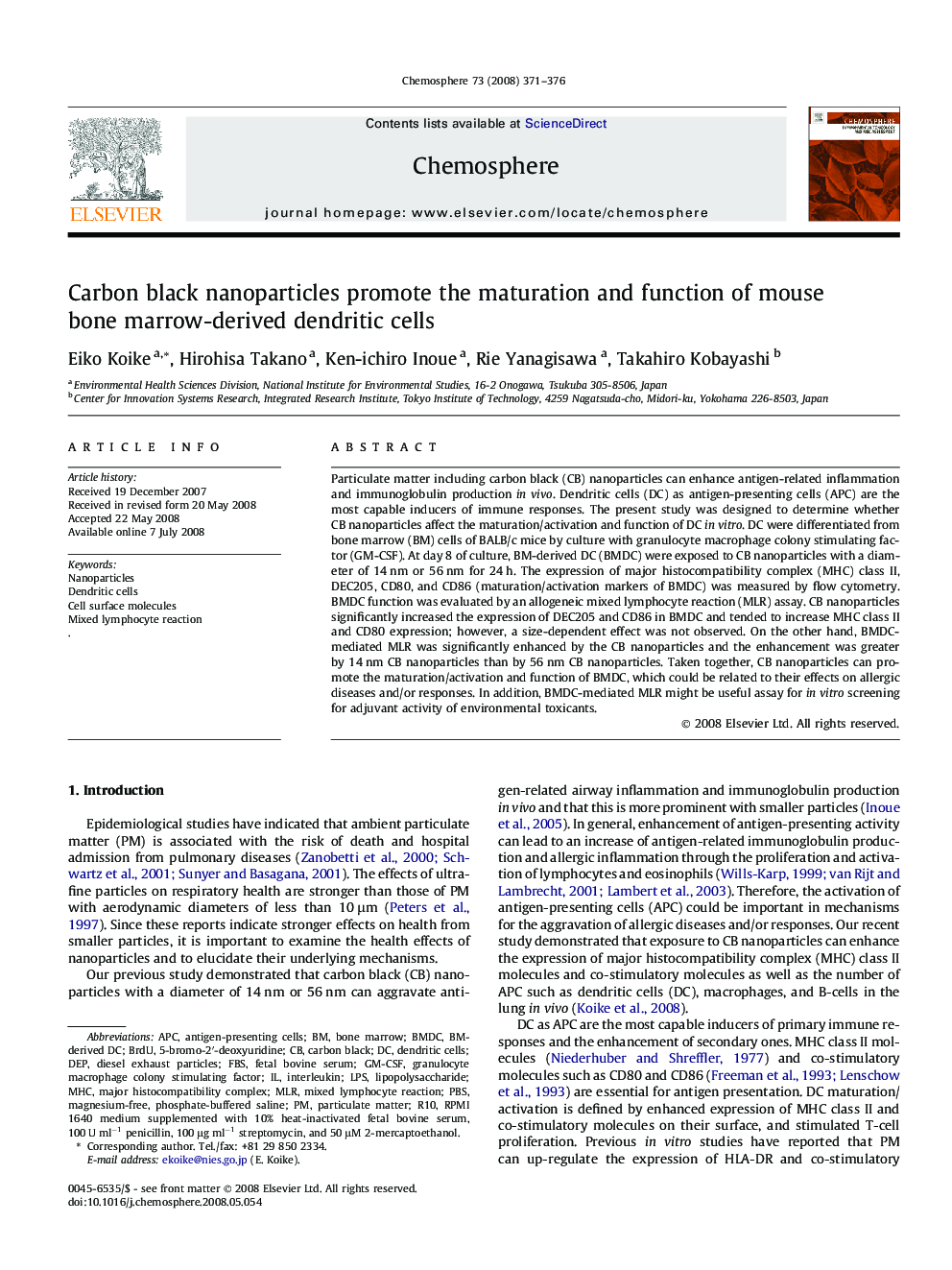| Article ID | Journal | Published Year | Pages | File Type |
|---|---|---|---|---|
| 4413463 | Chemosphere | 2008 | 6 Pages |
Particulate matter including carbon black (CB) nanoparticles can enhance antigen-related inflammation and immunoglobulin production in vivo. Dendritic cells (DC) as antigen-presenting cells (APC) are the most capable inducers of immune responses. The present study was designed to determine whether CB nanoparticles affect the maturation/activation and function of DC in vitro. DC were differentiated from bone marrow (BM) cells of BALB/c mice by culture with granulocyte macrophage colony stimulating factor (GM-CSF). At day 8 of culture, BM-derived DC (BMDC) were exposed to CB nanoparticles with a diameter of 14 nm or 56 nm for 24 h. The expression of major histocompatibility complex (MHC) class II, DEC205, CD80, and CD86 (maturation/activation markers of BMDC) was measured by flow cytometry. BMDC function was evaluated by an allogeneic mixed lymphocyte reaction (MLR) assay. CB nanoparticles significantly increased the expression of DEC205 and CD86 in BMDC and tended to increase MHC class II and CD80 expression; however, a size-dependent effect was not observed. On the other hand, BMDC-mediated MLR was significantly enhanced by the CB nanoparticles and the enhancement was greater by 14 nm CB nanoparticles than by 56 nm CB nanoparticles. Taken together, CB nanoparticles can promote the maturation/activation and function of BMDC, which could be related to their effects on allergic diseases and/or responses. In addition, BMDC-mediated MLR might be useful assay for in vitro screening for adjuvant activity of environmental toxicants.
